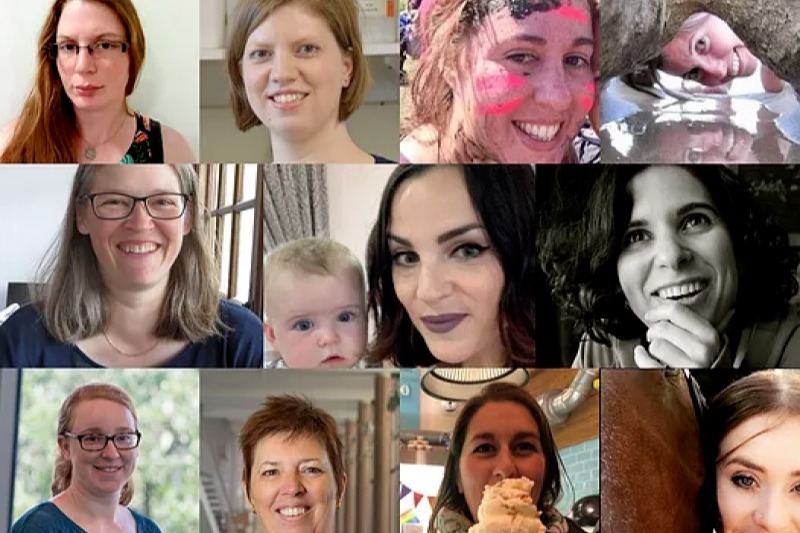Dr Jen Leigh is part of the International Women in Supramolecular Chemistry Network. Here she talks about how using creative and embodied methods are shining a light on the lived experiences of women and other marginalised groups in the lab.
Women in academia are disproportionately affected by funding structures, academic culture, and caring responsibilities whatever their discipline. It is common knowledge that there is a gender disparity in Science, Technology, Engineering, and Maths disciplines. Within the chemical sciences the lack of retention and progression for women and all those with protected Equality and Diversity characteristics is pronounced
I experienced this first-hand as a chemistry student – eventually leaving a PhD after 2 ½ years whilst pregnant with my second child. I moved on as a yoga teacher and somatic movement therapist, before completing a different PhD in education and beginning a career in Higher Education.
The International Women in Supramolecular Chemistry Network was started to address the issue of retention and progression for women in the field. The chair and founder Dr Jennifer Hiscock brought me in as a former chemist and social scientist with Equality, Diversity and Inclusion expertise to collaborate on a survey of the community which was published in a leading chemistry journal. Together the network has used an area-specific ethos of ‘calling in’ the community to support its own along with embodied, reflective, and creative methods including fiction and video to shine light on the lived experiences of women and other marginalised groups in the lab. We also share much of this in a book that will be released from Policy Press in 2022.
Intersectional feminist and creative research practices have allowed us to make sure that different voices are heard, and we can engage creatively with the scientific community and a public audience to share the reality of working in a lab. In this way we move beyond the numbers that tell us there is a problem, and help understand the human impact of marginalisation and capture the stories of those who succeed.
It feels like I have come full circle, using creative ways to show people that women can work in and run research labs and helping to change the culture to make it more inclusive. We are already making a difference. With the support of the Royal Society of Chemistry and the University of Kent we are expanding our work to collaborate with organisations like Empowering Female Minds in STEM and the National Association for Disabled Staff Networks to support the visibility of Black women in chemistry and to imagine the future accessible lab.
1 R.S.C., Diversity landscape of the chemical sciences, Royal Society of Chemistry, London, 2018.
2 R.S.C., Breaking the barriers: Women’s retention and progression in the chemical sciences, Royal Society of Chemistry, London, 2019.
3 WISC, WISC: Women in Suprachem, https://www.womeninsuprachem.com/, (accessed 13 October 2020).
4 C. Caltagirone, E. Draper, C. Haynes, M. Hardie, J. Hiscock, K. Jolliffe, M. Kieffer, A. McConnell and J. Leigh, Angew. Chemie Int. Ed., 2021, 60, 11572–11579.
5 J. Leigh and N. Brown, Embodied Inquiry: Research methods, Bloomsbury, London, 2021.
6 J. S. Leigh, J. R. Hiscock, C. Haynes, A. McConnell, M. Kieffer, E. Draper, K. Hutchins, D. Watkins, A. Slater, L. von Krbrek and N. Busschaert, Women In Supramolecular Chemistry: Collectively crafting the rhythms of our work and lives in STEM, Policy Press, Bristol, 2022.
7 EFeMS, Empowering Female Minds in STEM: Showing African Women that their possibilities are endless, https://www.empoweringfems.com, (accessed 16 July 2021).
8 NADSN, NADSN, https://www.nadsn-uk.org, (accessed 7 June 2021).
Further information:
Dr Jennifer Leigh – Unit for the Enhancement of Learning & Teaching – University of Kent

